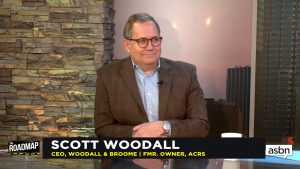Welcome to The Roadmap, an ASBN-exclusive resource designed to educate entrepreneurs of the value of growing and monetizing their businesses. On today’s episode, host Lee Heisman is joined by Tom Raymond, CEO of Talking Stick Technology to discuss his journey of not only selling his business once, but twice.
In the early 2000’s, Raymond started his entrepreneurial journey with the IT services industry. He found himself fortunate enough to grow the business until 2010. He was able to take the lessons from the initial business and started over again in 2013 to later sell again. Which after he launched his second company and discovered two crucial elements, including:
- The importance of building recurring revenue- The ability of having recurrent revenue streams that will be there every month without having to reinvent the wheel, eliminates a lot of stress. Raymond suggests, “when you’re looking to exit, acquisitions look for that revenue as well.”
- Know what you’re doing next- As entrepreneurs we tend to want to exit, but stay after the transitional period to add value to the new company.
However, Raymond mentions that every business has a transitional period of roughly 18 months. During those months, it allows you as the business owner to successfully transfer the good will of the business you’re selling. Raymond emphasizes, “most times, it’ll be a non-compete. So you won’t be competing against the contract you put in place.”
However, once he took some time off from his businesses, he discovered he had an adventure bug where he hiked the Appalachian trail to ultimately come back to his IT background and generate another successful business. His passion was to help other entrepreneurs be successful and what better way to do that than through the connection of technology.
“How you handle yourself in the first ten years also pays off in the next ten years.”
Whereas, In his own transitional period, Raymond explains, “I’ve learned a lot, but I feel like you have to really know what you want to do after you make that exit. For me, I knew I wanted to move onto other opportunities, so it made it smoother. Versus deciding if you want to stay and add value or not.



 ASBN, from startup to success, we are your go-to resource for small business news, expert advice, information, and event coverage.
ASBN, from startup to success, we are your go-to resource for small business news, expert advice, information, and event coverage.